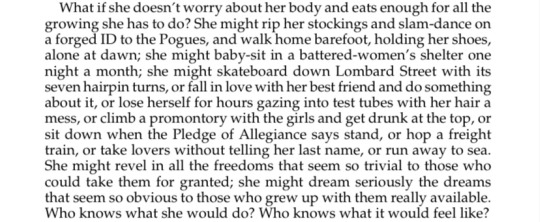#the beauty myth
Text
Cosmetic surgery is not “cosmetic,” and human flesh is not “plastic.” Even the names trivialize what it is. It’s not like ironing wrinkles in fabric, or tuning up a car, or altering outmoded clothes, the current metaphors. Trivialization and infantilization pervade the surgeons’ language when they speak to women: “a nip,” a “tummy tuck.” Rees writes, describing a second-degree acid burn over the face: “Remember when you were in school and you skinned your knee and a scab formed?” This baby talk falsifies reality. Surgery changes one forever, the mind as well as the body.
— Naomi Wolf (1990) The Beauty Myth
#anti cosmetic surgery#naomi wolf#the beauty myth#radblr#radfem#radical feminism#radfem safe#radical feminist safe
26 notes
·
View notes
Text
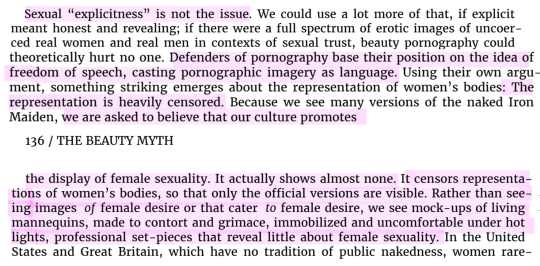
The Beauty Myth, Naomi Wolf
#radblr#radical feminism#radical feminists do touch#radical feminist safe#radical feminists do interact#the beauty myth#naomi wolf#terfsafe#beauty culture
41 notes
·
View notes
Text
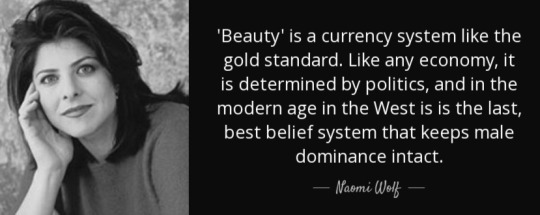
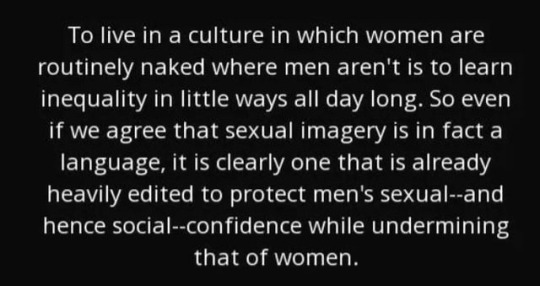
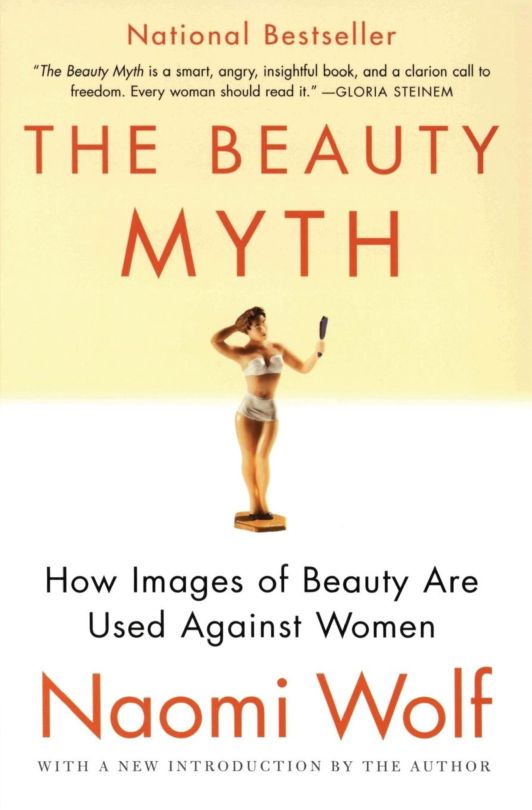
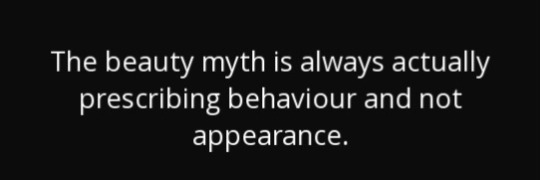
****************************************
#naomi wolf#the beauty myth#beauty culture#beauty standards#feminist books#feminist literature#feminist resources#feminist references#books#download#pdf & epub#feminist library#feminist reading#feminism#systemic misogyny#systemic oppression#female reality
32 notes
·
View notes
Text
"You could see the signs of female aging as diseased, especially if
you had a vested interest in making women too see them your way.
Or you could see that if a woman is healthy she lives to grow old; as
she thrives, she reacts and speaks and shows emotion, and grows
into her face. Lines trace her thought and radiate from the corners of
her eyes after decades of laughter, closing together like fans as she
smiles. You could call the lines a network of “serious lesions,” or you could see that in a precise calligraphy, thought has etched marks of
concentration between her brows, and drawn across her forehead
the horizontal creases of surprise, delight, compassion, and good
talk. A lifetime of kissing, of speaking and weeping, shows
expressively around a mouth scored like a leaf in motion. When gray and white reflect
in her hair, you could call it a dirty secret or you could call it silver or moonlight. Her body fills into itself, taking on gravity like a bather
breasting water, growing generous with the rest of her. She has
looked around in her life, and it shows. The
darkening under her eyes, the weight of her lids, their minute cross-hatching, reveal that what she has been part of has left in her its
complexity and richness. She is darker, stronger, looser, tougher,
sexier. The maturing of a woman who has continued to grow is a
beautiful thing to behold.
Or, if your ad revenue or your seven-figure salary or your
privileged sexual status depend on it, it is an operable condition.
If you could make a million dollars a year—the average income of
cosmetic surgeons in the United States—by doing so, then female fat can easily enough be called a disease. Or it can be seen for what
it is: normal, since even the thinnest healthy women have more fat
than men. When you see the way women’s curves swell at the hips
and again at the thighs, you could claim that that is an abnormal deformity. Or you could tell the truth: 75 percent of women are
shaped like that, and soft, rounded hips and thighs and bellies were
perceived as desirable and sensual without question until women got
the vote. Women’s flesh, you could acknowledge, is textured,
rippled, dense, and complicated; and the way fat is laid down on
female muscle, on the hips and thighs that cradle and deliver
children and open for sex, is one of the most provocative qualities of
the female body. Or you could turn this too into an operable
condition.
Whatever is deeply, essentially female—the life in a woman’s
expression, the feel of her flesh, the shape of her breasts, the transformations after childbirth of her skin—is being reclassified as
ugly, and ugliness as disease. These qualities are about an
intensification of female power, which explains why they are being
recast as a diminution of power. At least a third of a woman’s life is
marked with aging; about a third of her body is made of fat. Both
symbols are being transformed into operable conditions—so that
women will only feel healthy if we are two thirds of the women we
could be. How can an “ideal” be about women if it is defined as how
much of a female sexual characterisic does not exist on the woman’s
body, and how much of a female life does not show on her face?"
- The Beauty Myth by Naomi Wolf
42 notes
·
View notes
Text

They’re almost there to getting it. The feeling that OP shared was one of the key realizations that radicalized me. I hated my ethnic brows in primary school bc I felt ugly and my parents pressured me to change them. I grieve for my younger self. I grieve for all these women who can’t love their bodies. I’ve accepted I’m never gonna feel pretty- but it doesn’t matter! men don’t want you to feel pretty. They want you to be pretty for THEM. So be ugly
22 notes
·
View notes
Text
reading The Beauty Myth rn and it's kind of mind blowing. The central argument is that women started gaining so many rights during second wave feminism, that the beauty industry and beauty culture emerged as a way to control women, making them perform a "third shift" of labor (the first shift is a regular job and the second shift is housework). The book talks about how women without makeup are often considered unprofessional, and while I've been lucky enough to not face this myself, I can see this happening with friends who work in other fields, especially the service industry. I feel like professionally, makeup is becoming less important than when this book was written, but still makeup (as well as skincare/plastic surgery/etc) is omnipresent, and the ways of enforcing compliance have changed. Now it isn't as much of a professional burden, but a social one. If you don't like performing femininity, you're "not like the other girls" or you're a "pick me girl." Young girls are bombarded with tiktoks that say "this is your sign to get a bbl" and then when bbls are no longer trendy, there's some other trendy plastic surgery. You can gain a lot of social capital by conforming to beauty standards, hence the rise of the idea of "pretty privilege" (which I think is just an intersection of sexism, racism, colorism, and ableism, combined with the fact that making less waves will make you more popular). So people see how conformity will help them socially, and make them feel more powerful. You can gain social power by conforming, so I can see why so many beauty companies have been able so successfully rebrand as "feminist" despite being nothing of the sort. I think a coordinated attack on the beauty industry could be monumental for feminism, and I think we should pursue it.
8 notes
·
View notes
Text

The Beauty Myth by Naomi Wolf
Jaane Tu... Ya Jaane Na
22 notes
·
View notes
Text
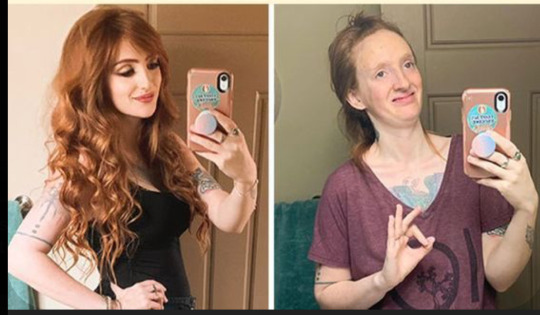
The version of her on the right is more of a woman than she ever is while in the dragified p*rnified costume on the left. I'd much rather see women looking exactly like her on the right, unafraid to be silly, looking untouched and more human.
#antibeauty#radicalfeminism#destroythepatriarchy#endthebeautyindustry#antiperformativity#the beauty myth#object to objectification#objectification#anti beauty industry
88 notes
·
View notes
Text
When a modern woman is blessed with a body that can move, run, dance, play, and bring her to orgasm; with breasts free of cancer, a healthy uterus, a life twice as long as that of the average Victorian woman, long enough to let her express her character on her face; with enough to eat and a metabolism that protects her by laying down flesh where and when she needs it; now that hers is the gift of health and well-being beyond that which any generation of women could have hoped for before—the Age of Surgery undoes her immense good fortune. It breaks down into defective components the gift of her sentient, vital body and the individuality of her face, teaching her to experience her lifelong blessing as a lifelong curse.
— Naomi Wolf (1990) The Beauty Myth
#anti cosmetic surgery#naomi wolf#the beauty myth#radblr#radfem#radical feminism#radfem safe#radical feminist safe
859 notes
·
View notes
Text
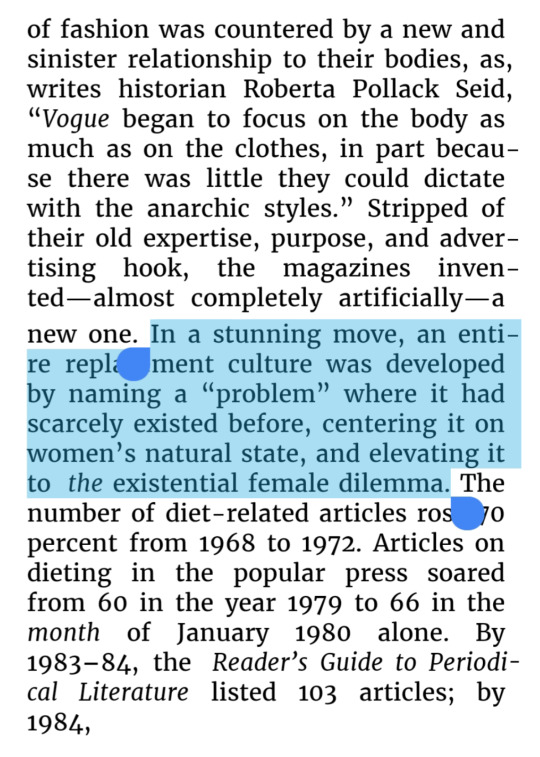
(The Beauty Myth, Naomi Wolf)
12 notes
·
View notes
Text
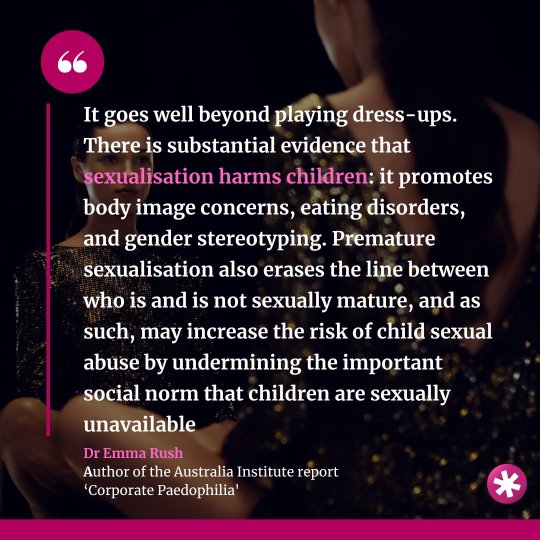
https://twitter.com/CollectiveShout/status/1691307133973721088?s=19
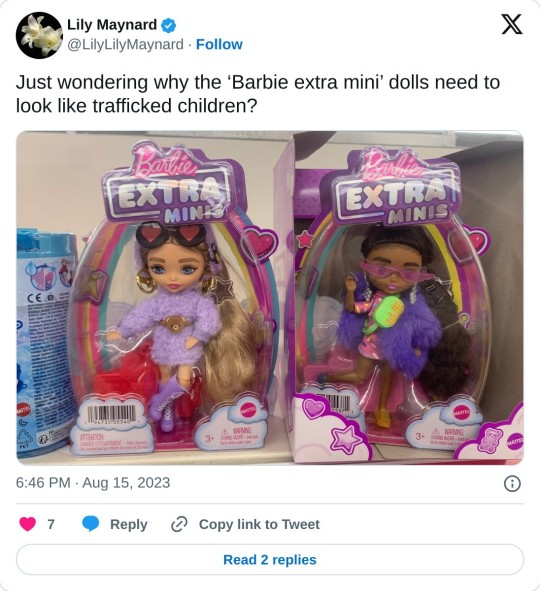
6 notes
·
View notes
Text
Public debate would be far more hysterically focused on male fat than on female, since more men (40 percent) are medically overweight than women (32 percent) and too much fat is far more dangerous for men than for women. In fact, “there is very little evidence to support the claim that fatness causes poor health among women…. The results of recent studies have suggested that women may in fact live longer and be generally healthier if they weigh ten to fifteen percent above the life-insurance figures and they refrain from dieting,” asserts Radiance; when poor health is correlated to fatness in women, it is due to chronic dieting and the emotional stress of self-hatred. The National Institutes of Health studies that linked obesity to heart disease and stroke were based on male subjects; when a study of females was finally published in 1990, it showed that weight made only a fraction of the difference for women that it made for men. The film The Famine Within cites a sixteen-country study that fails to correlate fatness to ill health. Female fat is not in itself unhealthy.
- The Beauty Myth by Naomi Wolf.
#me posting#radfem safe#radical feminism#feminism#radfem#passages#the beauty myth#naomi wolf#fatphobia#misogyny#sexism
5 notes
·
View notes
Text
The moment I said to a handmaiden "I don't know if being promiscuous is empowering or is actually objectifying and thus participating in patriarchal conventions" was when I awoke and didn't know it.
#radfem#radical feminism#radical feminist#radblr#antibeauty#the beauty myth#beauty is misogyny#object to objectification
15 notes
·
View notes
Text
Ratna Pathak reading 'The Beauty Myth' by Naomi Wolf in the film 'Jaane tu ya jaane na'
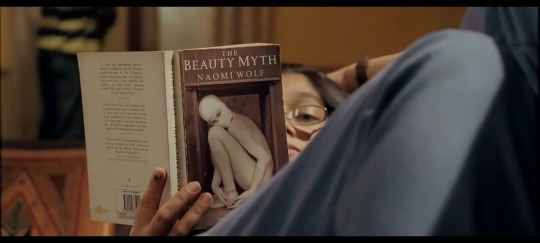
15 notes
·
View notes
